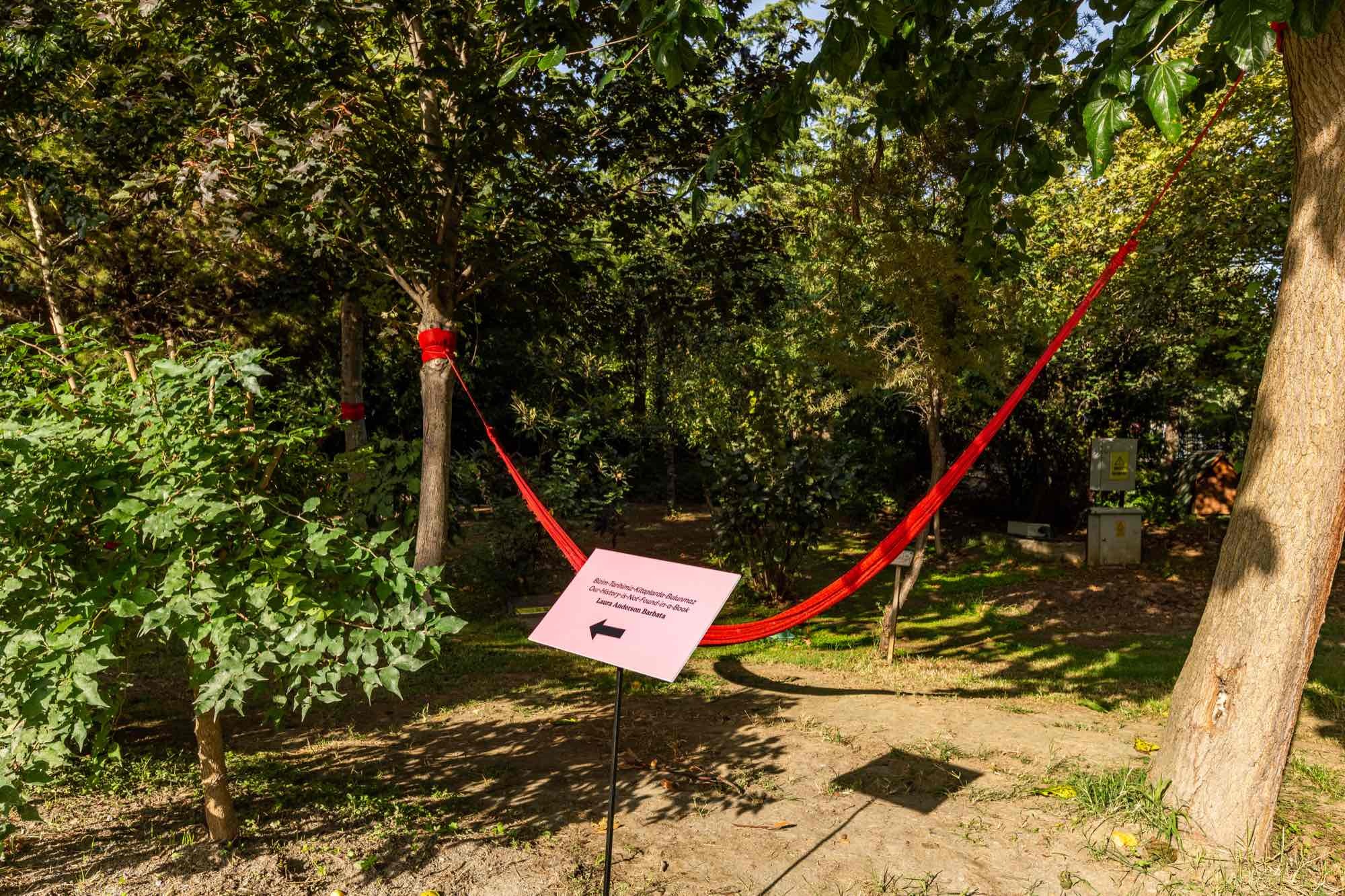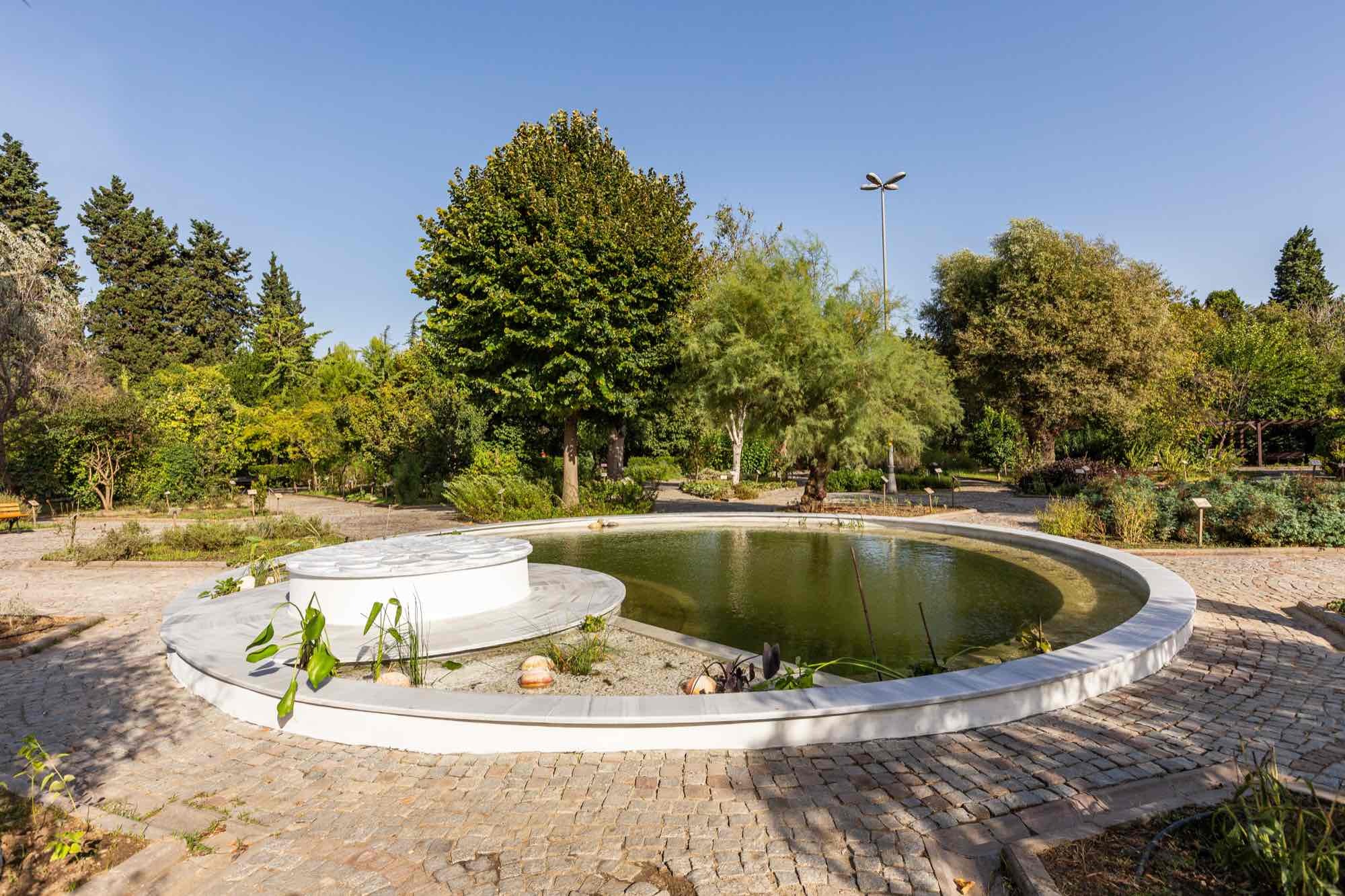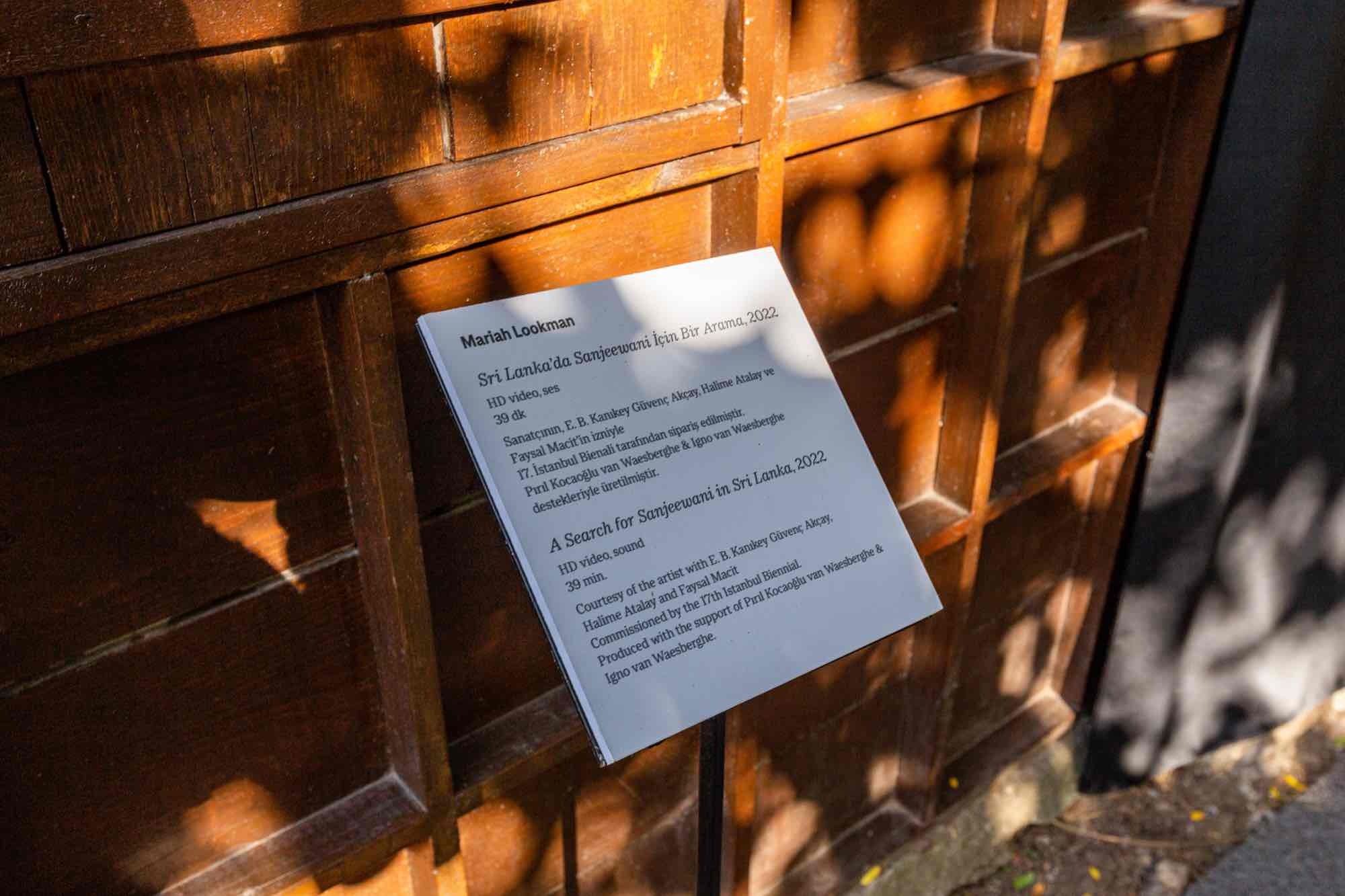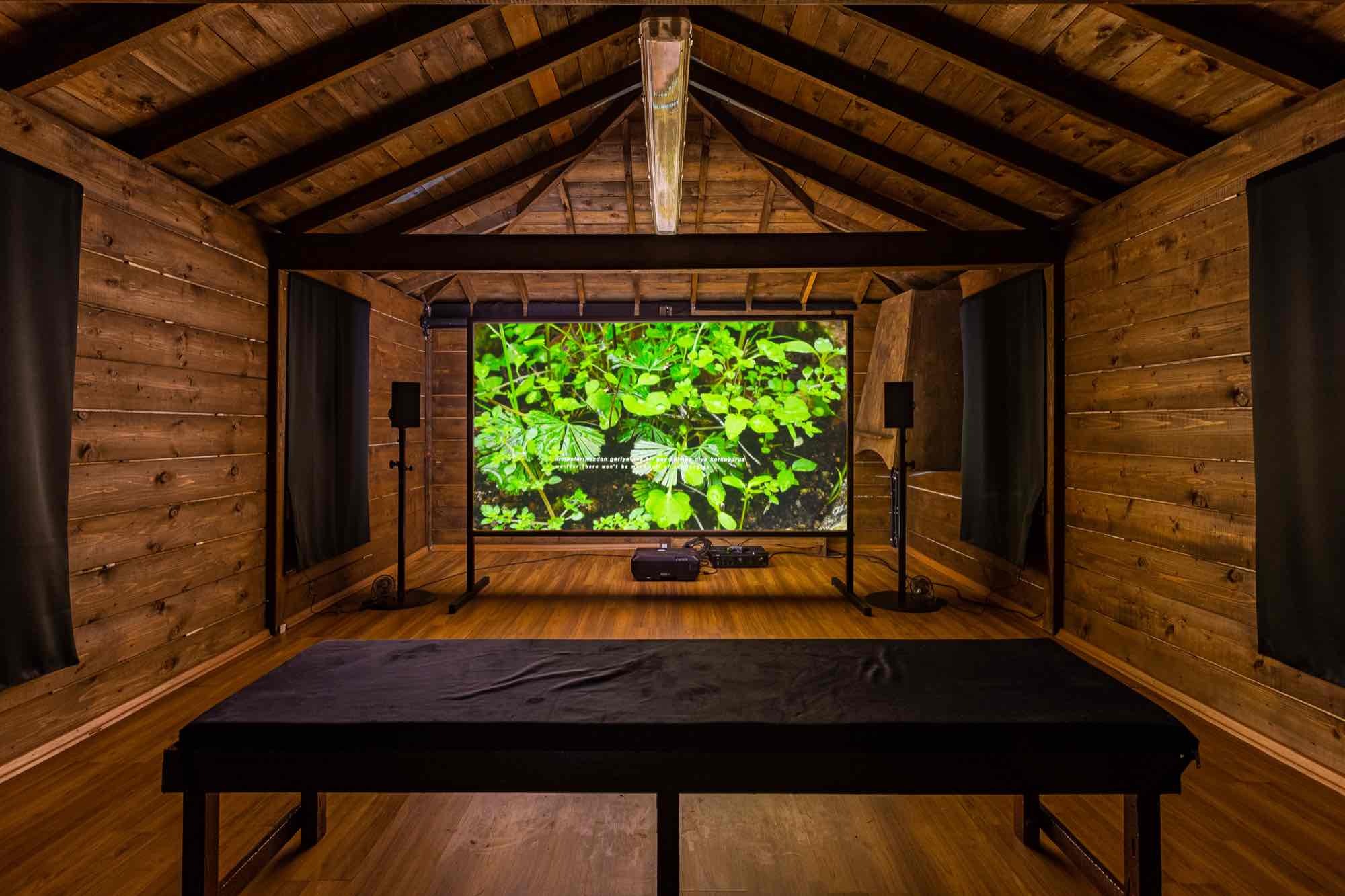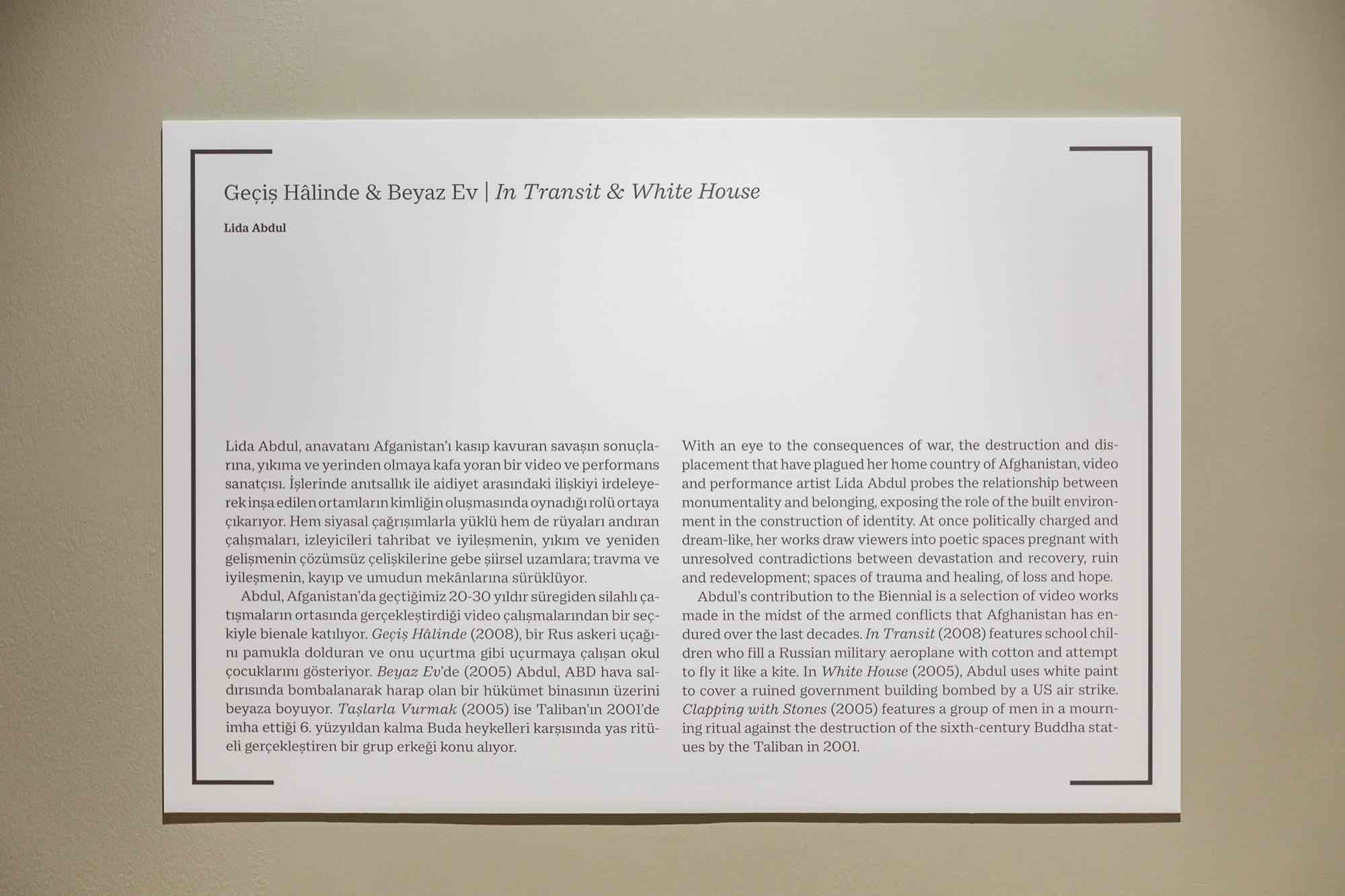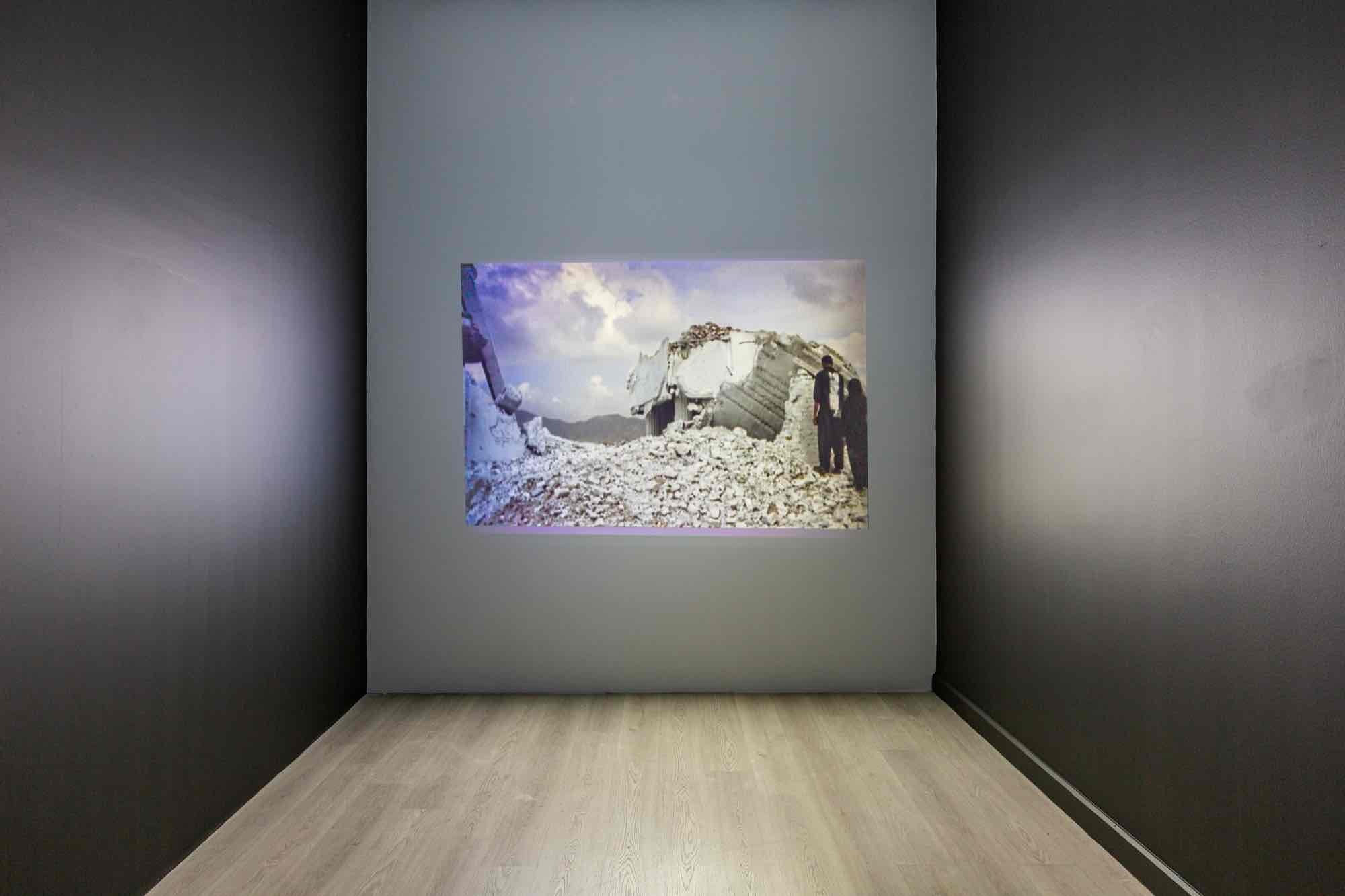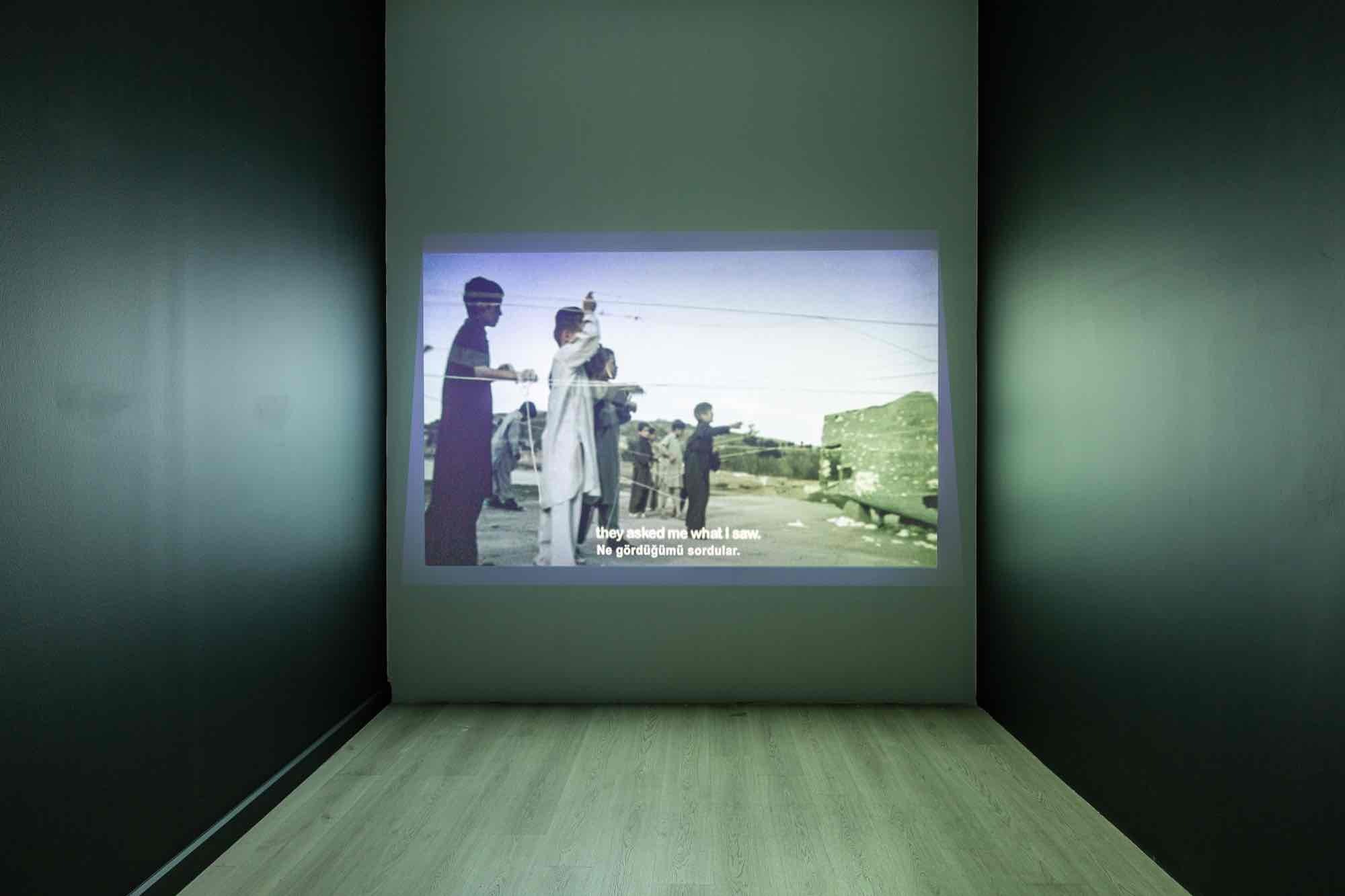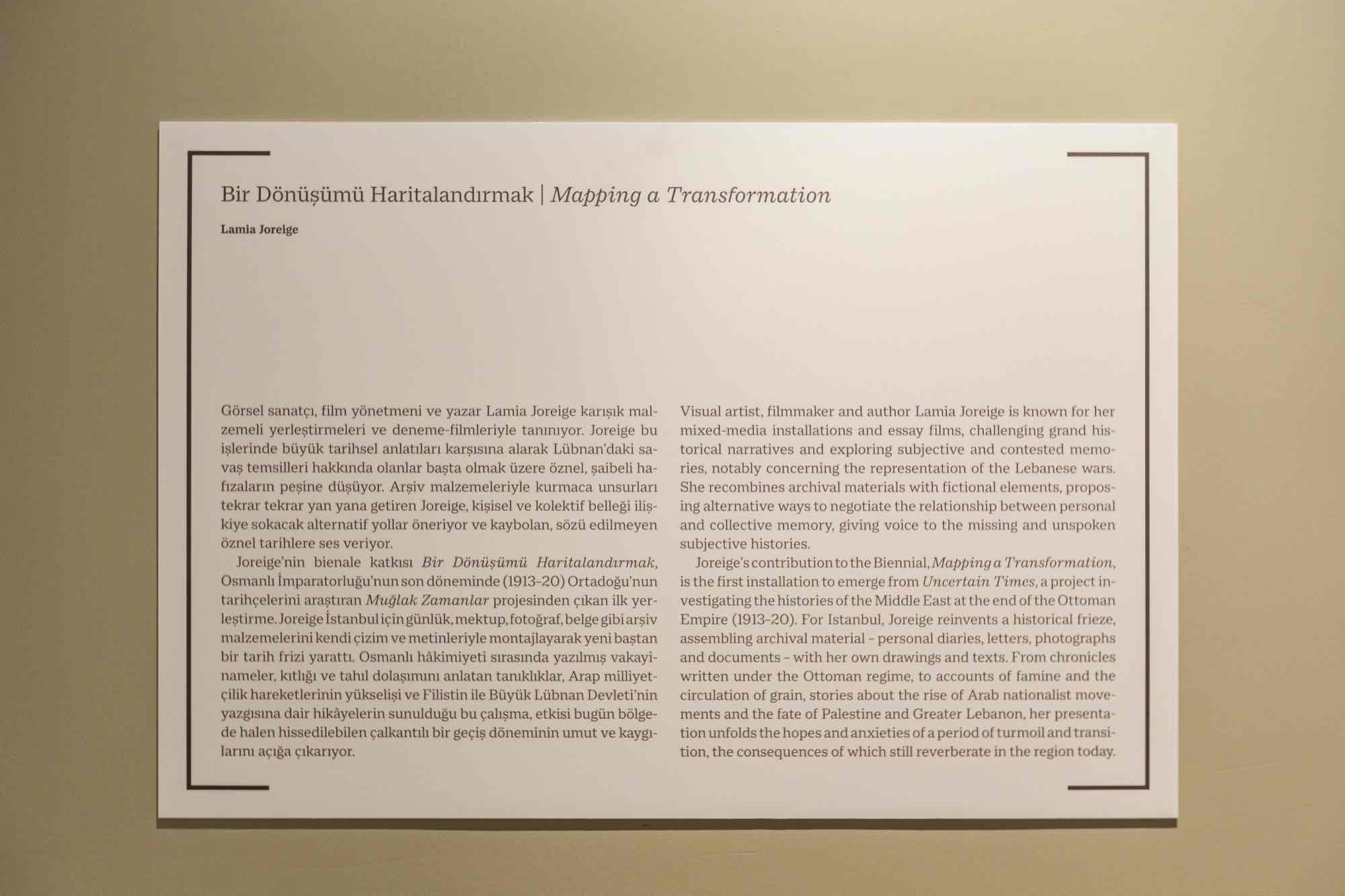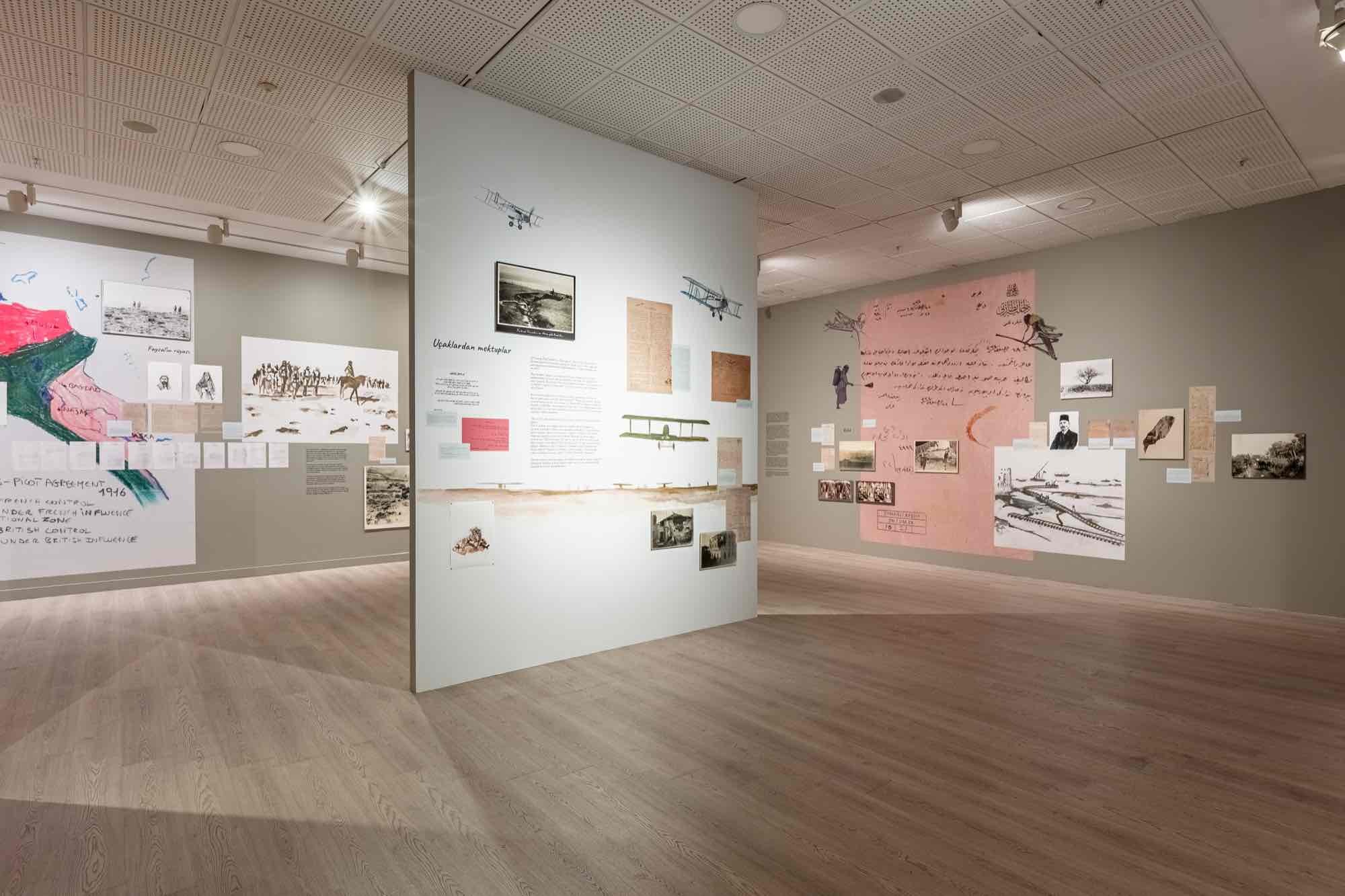17th Istanbul Biennial
17 Sep - 20 Nov 2022
The 17th Istanbul Biennial is the result of more than two years of conversations on projects situated in different parts of the globe.
This edition is curated by Ute Meta Bauer, Amar Kanwar and David Teh.
Istanbul Biennial 2022 will be situated in specific locations across the city to reveal and amplify connections between present-day life and Istanbul’s richly layered past. Spanning historic districts as well as those developed during the city’s expansion over the last century, the Biennial venues will include the atelier of a modern master calligrapher and bookbinder, a fifteenth century hammam, an abandoned Greek School, an art space run by immigrant artists and a former gas house, newly renovated as a cultural centre, along with an independent radio station that has broadcast for over two decades. Together, these sites will not only play host to the biennial’s diverse projects, but will also reveal social histories and contemporary challenges faced by Istanbulites in the midst of constant change.
Located in the three distinctive regions of Beyoğlu, Kadıköy, Zeytinburnu and the Old City (Fatih), the Biennial’s exhibitions will take place in the following venues:
In Beyoğlu, a cosmopolitan district on the European side of Istanbul, separated from the old city by the waterway known as the Golden Horn, venues will include the Suna and İnan Kıraç Foundation Pera Museum, Performistanbul Live Art Research Space (PCSAA) and the Central Greek High School for Girls. Conceived by SAHA as a studio and residency program for artists and curators, SAHA Studio will present a special program as one of the participants of the Istanbul Biennial.
Kadıköy, a residential neighbourhood on Istanbul’s Asian shore, famed for its bustling fish and produce market with views across the Sea of Marmara, is the setting for Gashouse Museum and arthereistanbul, an independent space for artistic creation, originally founded by Syrian migrant artists.
In the Old City (Fatih), bordered by the Golden Horn in the north and the Sea of Marmara in the south, visitors will explore Barın Han, known as the atelier of Turkey’s leading calligrapher and book-binding expert Emin Barın, and the Küçük Mustafa Paşa Hammam, one of the city’s oldest Turkish baths.
Located in the Zeyrek residential neighbourhood of Istanbul's Fatih district, The Çinili Hamam is one of the most noteworthy examples of Ottoman hammam architecture. Commissioned by Admiral Barbarossa Hayreddin Pasha between 1540 and 1546, it was one of the earliest hammams designed by chief Ottoman architect, Mimar Sinan. Its distinctive blue-and-white Iznik tiles, damaged in devastating earthquakes and fires during the eighteenth century, were sold off by a Parisian antique dealer and found their way into Europe's most distinguished museums. A few can still be seen in the hot room (caldarium) of the men's section.
Founded in 2005, Zeytinburnu Medicinal Plants Garden was the first garden of its kind in Turkey. Located not far from the Sea of Marmara near several historic hospitals and the cemeteries of many different faiths, the garden stands at a sensory and spiritual crossroads between modern medicine and various healing traditions. Also within walking distance are the Yenikapı Mevlevi Lodge, built in 1597, and the tomb of fifteenth-century Islamic scholar and founder of the nearby Khalwatiyya Lodge, Merkez Efendi, whose famed recipe for mesir (a spicy paste known for its invigorating effects) contained 41 different herbs and spices.
The 17th Istanbul Biennial will also feature a strong digital and audio-visual presence. Its main thematic concerns will be introduced by way of a special programming collaboration with the Istanbul Film Festival this April. The artists and curators have also been engaging Turkish speaking communities through Radyo Bienal, hosted by Açık Radyo (Open Radio), an independent and egalitarian terrestrial radio channel. Across the summer of 2022 in the lead-up to the exhibition, Radyo Bienal will reach out to global audiences through a regular series of podcasts opening up the process and research of Biennial participants. The programmes will be made available in both Turkish and English on the İKSV website, and through social media and podcast platforms.
In a joint statement, the curators said: ‘As art organisations worldwide face existential questions of survival and relevance, biennials must take the initiative. Art can refresh the vocabularies of public discourse, opening new pathways of thought. There may be no grand themes, no great gathering or orchestrated coming together in one time and place; instead, it might be a great dispersal of ideas, with the potential to start way before and to resonate long after the formal eight-week season of the Biennial.’
This edition is curated by Ute Meta Bauer, Amar Kanwar and David Teh.
Istanbul Biennial 2022 will be situated in specific locations across the city to reveal and amplify connections between present-day life and Istanbul’s richly layered past. Spanning historic districts as well as those developed during the city’s expansion over the last century, the Biennial venues will include the atelier of a modern master calligrapher and bookbinder, a fifteenth century hammam, an abandoned Greek School, an art space run by immigrant artists and a former gas house, newly renovated as a cultural centre, along with an independent radio station that has broadcast for over two decades. Together, these sites will not only play host to the biennial’s diverse projects, but will also reveal social histories and contemporary challenges faced by Istanbulites in the midst of constant change.
Located in the three distinctive regions of Beyoğlu, Kadıköy, Zeytinburnu and the Old City (Fatih), the Biennial’s exhibitions will take place in the following venues:
In Beyoğlu, a cosmopolitan district on the European side of Istanbul, separated from the old city by the waterway known as the Golden Horn, venues will include the Suna and İnan Kıraç Foundation Pera Museum, Performistanbul Live Art Research Space (PCSAA) and the Central Greek High School for Girls. Conceived by SAHA as a studio and residency program for artists and curators, SAHA Studio will present a special program as one of the participants of the Istanbul Biennial.
Kadıköy, a residential neighbourhood on Istanbul’s Asian shore, famed for its bustling fish and produce market with views across the Sea of Marmara, is the setting for Gashouse Museum and arthereistanbul, an independent space for artistic creation, originally founded by Syrian migrant artists.
In the Old City (Fatih), bordered by the Golden Horn in the north and the Sea of Marmara in the south, visitors will explore Barın Han, known as the atelier of Turkey’s leading calligrapher and book-binding expert Emin Barın, and the Küçük Mustafa Paşa Hammam, one of the city’s oldest Turkish baths.
Located in the Zeyrek residential neighbourhood of Istanbul's Fatih district, The Çinili Hamam is one of the most noteworthy examples of Ottoman hammam architecture. Commissioned by Admiral Barbarossa Hayreddin Pasha between 1540 and 1546, it was one of the earliest hammams designed by chief Ottoman architect, Mimar Sinan. Its distinctive blue-and-white Iznik tiles, damaged in devastating earthquakes and fires during the eighteenth century, were sold off by a Parisian antique dealer and found their way into Europe's most distinguished museums. A few can still be seen in the hot room (caldarium) of the men's section.
Founded in 2005, Zeytinburnu Medicinal Plants Garden was the first garden of its kind in Turkey. Located not far from the Sea of Marmara near several historic hospitals and the cemeteries of many different faiths, the garden stands at a sensory and spiritual crossroads between modern medicine and various healing traditions. Also within walking distance are the Yenikapı Mevlevi Lodge, built in 1597, and the tomb of fifteenth-century Islamic scholar and founder of the nearby Khalwatiyya Lodge, Merkez Efendi, whose famed recipe for mesir (a spicy paste known for its invigorating effects) contained 41 different herbs and spices.
The 17th Istanbul Biennial will also feature a strong digital and audio-visual presence. Its main thematic concerns will be introduced by way of a special programming collaboration with the Istanbul Film Festival this April. The artists and curators have also been engaging Turkish speaking communities through Radyo Bienal, hosted by Açık Radyo (Open Radio), an independent and egalitarian terrestrial radio channel. Across the summer of 2022 in the lead-up to the exhibition, Radyo Bienal will reach out to global audiences through a regular series of podcasts opening up the process and research of Biennial participants. The programmes will be made available in both Turkish and English on the İKSV website, and through social media and podcast platforms.
In a joint statement, the curators said: ‘As art organisations worldwide face existential questions of survival and relevance, biennials must take the initiative. Art can refresh the vocabularies of public discourse, opening new pathways of thought. There may be no grand themes, no great gathering or orchestrated coming together in one time and place; instead, it might be a great dispersal of ideas, with the potential to start way before and to resonate long after the formal eight-week season of the Biennial.’


